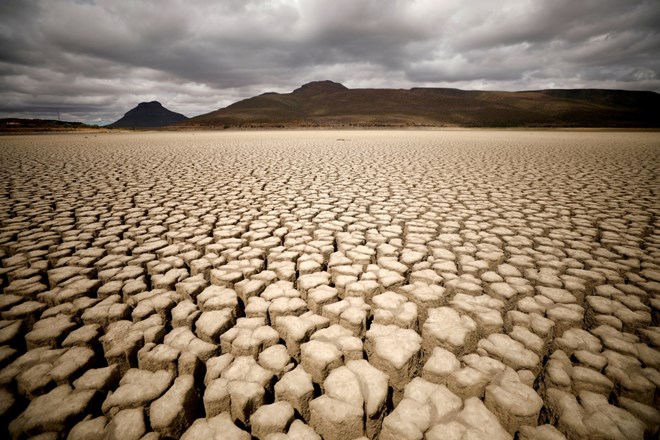
Monday April 11, 2022
By EDITH MUTETHYA

Clouds gather but produce no rain as cracks are seen in the dried up municipal dam in drought-stricken Graaff-Reinet, South Africa, Nov 14, 2019. [Photo/Agencies]
Festus Mutisya, a farmer in Kenya's eastern county of Machakos, stared at the clouds expectantly, hoping the already delayed rains would fall soon.
Mutisya is worried that the absence of rain for the fourth consecutive season would be catastrophic and many people may be unable to put food on the table.
advertisements
"Farmers are opting at selling their livestock to avoid watching them die due to lack of pasture and water as is the case in the northern part of the country," he said.Mutisya, who is also a teacher, said the absence of rain or poor harvest would lead to rising school dropout rates unless the government intervenes through enhanced school feeding programs.
"It's hard for a child who had no dinner and breakfast to concentrate in class. But if they are assured of one or two meals in school, they won't miss classes," he said.
As Mutisya hopes for the best, United Nations agencies are warning that food insecurity is likely to worsen in many parts of Africa.
On Friday, the International Organization for Migration warned that the Horn of Africa is in the grip of the worst drought in decades, with an estimated 15 million people being severely affected in Kenya, Somalia and Ethiopia.
Tens of thousands of hectares of crops have been destroyed, and 1.4 million livestock died late last year due to drought in Kenya alone, the UN agency said.
It attributed the situation to the impact of failed rainy seasons, conflict and insecurity, extreme weather, climate change, desert locusts, and the negative socioeconomic impacts of the COVID-19 pandemic.
West and Central Africa regions are also experiencing record high food insecurity, with the number of people facing hunger expected to hit 41 million by June, unless appropriate measures are urgently taken, the World Food Programme warned.
"The situation is spiraling out of control. Needs are escalating much faster than we are currently able to respond-this in an immensely complex and volatile operational environment," said Chris Nikoi, WFP's regional director for West Africa, in a statement on Friday.